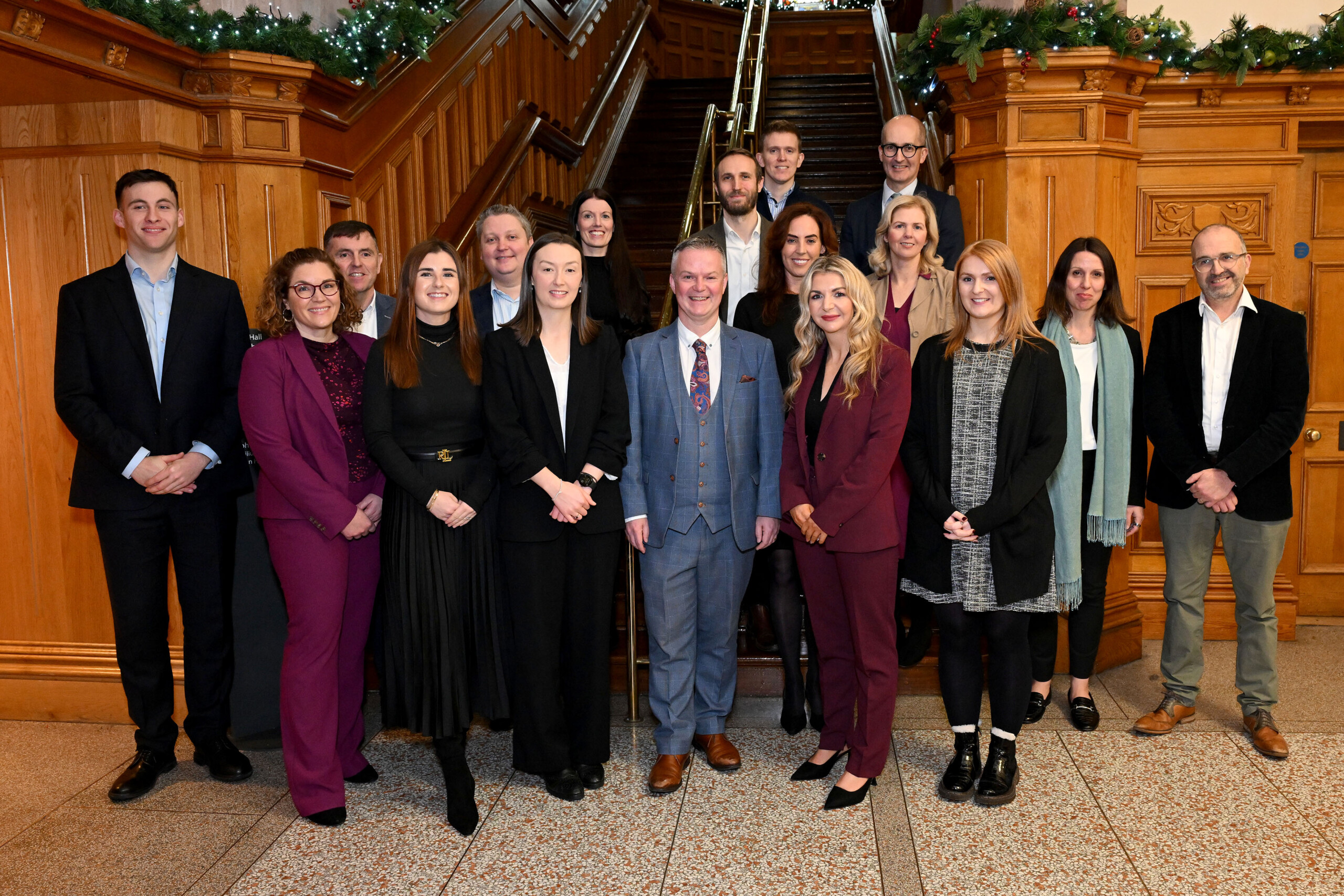
The aviation employers making an impact with apprenticeships
Apprenticeships are really taking off and it couldn’t come at a more crucial time. In the past few years the shortage of skilled, aviation professionals have reached worrying levels with figures suggesting the situation could get worse if not addressed urgently. According to Boeing’s estimates, the industry will need two million new commercial airline pilots, maintenance technicians and cabin crew members over the next 20 years.
So why has it taken so long for apprenticeships – in-work, industry specific, skills training programmes – to be considered as a viable alternative to more traditional hiring routes? In the past, apprenticeships have been criticised and deemed unfit for purpose as individuals qualified with inadequate skills for a specific role. This obviously led to frustrations for both the employer and employee. But recent changes to how standards are designed, developed and assessed has meant employers are front and centre in their construction.
This employer-led approach is particularly pertinent with the end-assessment of the apprenticeship and has given this in-work training a new, respected, lease for life. Challenging more traditional routes into the workplace and benefitting employers by offering even more than the highly sought-after pipeline of talent. Apprentices are reported to spark life into a workplace, adding a whole new dimension and bringing with them new perspective and fresh ideas impacting positively on overall business productivity.
In mentoring an apprentice, it effectively forces a business to self-assess and re-evaluate current staff skills and work methods, streamlining existing processes and improving efficiency, as well as crucially tackling the skills shortages. Apprenticeships are ideal for upskilling current employees but also enable the employer to source talent from areas they may well have overlooked or been resistant to in the past.
“Apprenticeships are a huge asset to our business as they enable us to attract new talent and upskill our existing workforce. Apprenticeships are equally as beneficial to both the organisation and the individual. Our apprentices feel valued and invested in and we get motivated and skilled people growing with us.”
Rebecca Wakelin, Early Talent & Apprenticeship Manager, TUI
“They attract a much more diverse audience by working in partnership with recognised agencies to support our diversity & inclusion agenda. As well as attracting a broader and more diverse talent pool.”
Karima Khandker, Head of Heathrow Employment, Heathrow Airport Limited
“The programs allow a young generation to enter the industry and allows business to train employees how they want to train them. This benefits not only the apprentices as they gain experience, qualifications and a salary but also the company as they will receive well skilled employees once qualified.”
Samuel Smallwood, AGP Programme Manager Skills, Collins Aerospace
The employers leading the way
A group of likeminded and passionate aviation experts joined forces to form the Aviation Industry Skills Board (AISB) in order to raise skills and professionalise their industry. Expertly chaired by Karen Hewitt, Apprenticeships & Emerging Talent Manager at British Airways, the AISB includes leading UK airlines, airports, ground handling agents, travel companies and representatives from the military, The Honourable Company of Air Pilots and the Royal Aeronautical Society.
The work of the AISB also works towards the Department for Transport’s proposed aviation strategy – Aviation 2050: the future of UK aviation – in ensuring the industry has at its disposal a ready supply of talent to meet both current demand and future need.
Facilitated by People 1st International, the board is responsible for the creation and evaluation of aviation apprenticeships through to the governance of external quality assurance of end-point assessment. This employer-led approach drives the quality of apprenticeships, ensuring they remain fit for purpose for all stakeholders.
“An employer-led approach is important to the development and quality assurance of apprenticeships as it allows employers to take responsibility of the apprenticeships within their industry. Employers know what is happening in their industry and what works and what doesn’t, this means that we can develop the apprenticeships that are really needed and that will help the industry.”
Charlotte Booton, Apprenticeship and Early Careers Manager, easyJet
As a member of the board, employers work collaboratively to set the annual strategy, identifying the skills & apprenticeship priorities for the sector that will help to address critical recruitment and retention challenges. They are also central to the design, evaluation and ongoing quality maintenance of apprenticeship standards giving business the confidence they are fit for purpose and meet industry needs.
“The single biggest benefit is that by working together we can raise the profile of skills within the industry. It means the impact we can have is far larger than working by ourselves to promote the skills and roles the aviation industry offers.”
Charlotte Booton, Apprenticeship and Early Careers Manager, easyJet
“This board has enabled the creation of a number of new apprenticeship standards that meet industry requirements and set us up for the future. It is a great collaborative board and has addressed the real needs of the industry.”
Karima Khandker, Head of Heathrow Employment, Heathrow Airport Limited
The standards and their impact
Since it’s conception, the AISB have worked tirelessly to create 5 new standards ranging from level 2 to level 6 with a further 8 being proposed for development. This is extremely exciting and makes working within aviation more accessible to a wider talent pool. People who may not have ordinarily consider a career in the industry are offered a route in, which is both affordable and has a clear, career pathway.
“The redesign of the aviation apprenticeships at Level 2 has been an important step over the last 12 months. With an additional two level 2 standards nearly ready these are exciting times for the sector as we realign them to new ways of working that support the move to towards atomisation and autonomous vehicles. These new qualifications are a critical entry points for colleagues joining our sector and are very welcome and much needed by a range of sector employers.”
Peter Gardner, Apprenticeship & Talent Development Manager UK&I, Menzies Aviation UK Ltd, Menzies World Cargo, Heathrow Airport
Although the reformed aviation apprenticeships are in their relative infancy, signs are very encouraging. With just over 1000 starts to date, the near 10% of those qualified are showing all the signs of a well skilled, fit for purpose employee committed to developing further and advancing within the industry.
“The next stage for aviation and also apprenticeships holds great excitement, but also challenges. The prospect of inspiring the next generation of aviation professionals is a great opportunity. Bringing together people from different backgrounds and further diversifying our sectors workforce is definitely one all of industry should relish.”
Peter Gardner, Apprenticeship & Talent Development Manager UK&I, Menzies Aviation UK Ltd, Menzies World Cargo, Heathrow Airport
For more information on the aviation apprenticeships available to your business and employees, click here.



